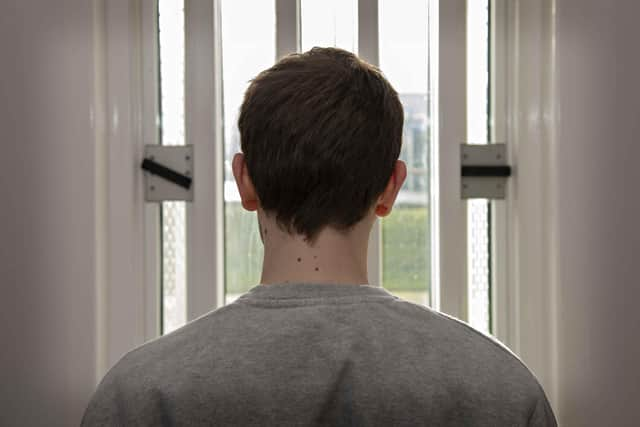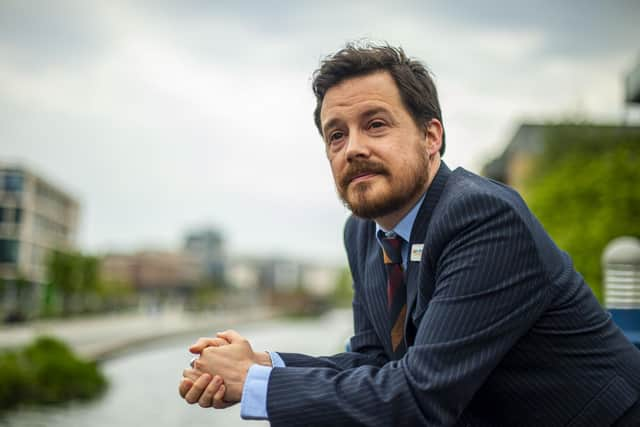Vulnerable children may have been detained unlawfully across Scotland
and live on Freeview channel 276
Scotland’s Children and Young People’s Commissioner (CYPC) said there was scant proof that scores of children had been consulted within the “critical” 72 hour period following the outcome of children’s hearings, with fewer than one in seven formally notified of their right to appeal.
The commissioner’s office warned that such inaction inhibits children from challenging decisions to deprive them of their liberty, and leaves local authorities in breach of their legal obligations.
Advertisement
Hide AdAdvertisement
Hide AdThe CYPC said its investigation into how councils complied with legislation when placing 118 children in secure accommodation raised “serious questions” about the extent to which the youngsters were meaningfully involved in the process, which it said impacted on their ability to understand their own care history in later life.
Its report, passed to Scotland on Sunday, found that the views of children were not routinely recorded. One local authority used a ‘tickbox’ to register a child’s opinions. Another could not locate case records.
The research found some children had spent as long as 572 days in secure accommodation, despite the fact the United Nations Convention on the Rights of the Child (UNCRC) - an international treaty soon to be incorporated into Scots law - defines detention as a measure of last resort which should only be used for as short a time as possible.
With the commissioner calling for an “urgent” review of the system, the Scottish Government said Clare Haughey, the children’s minister, would be writing to all chief social work officers (CSWOs) across Scotland to ensure they were complying with regulations.
Advertisement
Hide AdAdvertisement
Hide Ad

Nick Hobbs, head of advice and investigations at the commissioner’s office, said decisions with “severe consequences” were being made without due process of law, which constituted a breach of children’s human rights.
“It is critical that these children understand what is happening to them, that they are a key part of decisions that can impact the rest of their lives, and that they are told about their right of appeal,” he said.
The CYPC report, which spanned detentions between 1 August 2018 and 31 July 2019, identified an “inconsistency of approaches” by local authority CSWOs, and said a “significant number” of the 118 children may have been held unlawfully for at least part of their detention.
Under the Children’s Hearings (Scotland) Act 2011 (Implementation of Secure Accommodation Authorisation) (Scotland) Regulations 2013, CSWOs are required to consult children within 72 hours of a hearing decision, and explain how they can appeal it.
Advertisement
Hide AdAdvertisement
Hide Ad

But the commissioner’s office found only 18 instances where consultation had taken place, and seven cases in which there was evidence of children’s views being noted.
The CYPC said evidence of CSWOs’ decisions being sent to children was “relatively rare.” In some cases, authorities resorted to a “straight copy and paste” from the legislation which failed to address a child’s individual circumstances.
A key concern flagged by the CYPC was that not all children placed in secure accommodation had been formally notified of their appeal rights.
Scottish Government guidance stipulates that the notification should be “specific” about the reasons for the decision, and “clearly articulated."
Advertisement
Hide AdAdvertisement
Hide AdHowever, the CYPC research identified just 19 evidenced instances where children were notified about appeals, impacting on their ability to challenge decisions in court.
Hobbs explained: “The purpose of the regulations is to protect children’s rights in this really complex process, ensure they know what their rights are, and allow them to understand what has happened to them at a hugely chaotic, distressing and traumatic time in their lives.
“It’s not good enough for professionals to rely on the idea that they had children’s best interests at heart. If a child can’t understand how decisions were made, or doesn’t have the information available to challenge those decisions, they may have a very different understanding of what’s in their best interests.”
The commissioner, Bruce Adamson, said: “Taking away a child’s liberty is one of the most serious restrictions a state can impose on children’s human rights. It has deep and long-lasting consequences, particularly on a child’s emotional and social development.
Advertisement
Hide AdAdvertisement
Hide Ad“Human rights law is clear that the detention of a child must be within the law and be only used as a measure of last resort and for the shortest appropriate period of time.”
Only last year, the independent care review emphasised that the legal processes surrounding the placement of children in secure care settings must ensure their rights are upheld. It stated that children must be consulted, allowed to express their views, and told about their legal rights of appeal.
“That must not be done in a tokenistic way, but through a culture of care that upholds rights in a way that meets their needs and helps them understand their legal protections,” its authors explained.
The CYPC has sent copies of its investigation to MSPs, and while a number of local authorities and CSWOs have since taken steps to review or amend their policies, the commissioner’s office has urged them to review previous cases for possible breaches.
Advertisement
Hide AdAdvertisement
Hide AdIt said its research revealed a “scrutiny gap” in relation to compliance with local authorities’ legal duties. It pointed out that no functional mechanism exists at a local, national, or multi-agency level to ensure the law was being met.
The CYPC also said the Scottish Government should reexamine the effectiveness of existing procedural safeguards, as well as the need for different or additional statutory measures and inspection mechanisms, to ensure compliance with the UNCRC as well as the European Convention of Human Rights.
Noting the report’s “important findings,” a Scottish Government spokeswoman said: “We will work closely with COSLA and Social Work Scotland, supporting them to meet any necessary improvement actions identified in the report.
“The children’s minister will write to all CSWOs seeking assurance that they have, where necessary, amended their procedures to comply with all regulations.”
A message from the editor:
Thank you for reading this article. We're more reliant on your support than ever as the shift in consumer habits brought about by coronavirus impacts our advertisers. If you haven't already, please consider supporting our trusted, fact-checked journalism by taking out a digital subscription.
Comment Guidelines
National World encourages reader discussion on our stories. User feedback, insights and back-and-forth exchanges add a rich layer of context to reporting. Please review our Community Guidelines before commenting.
